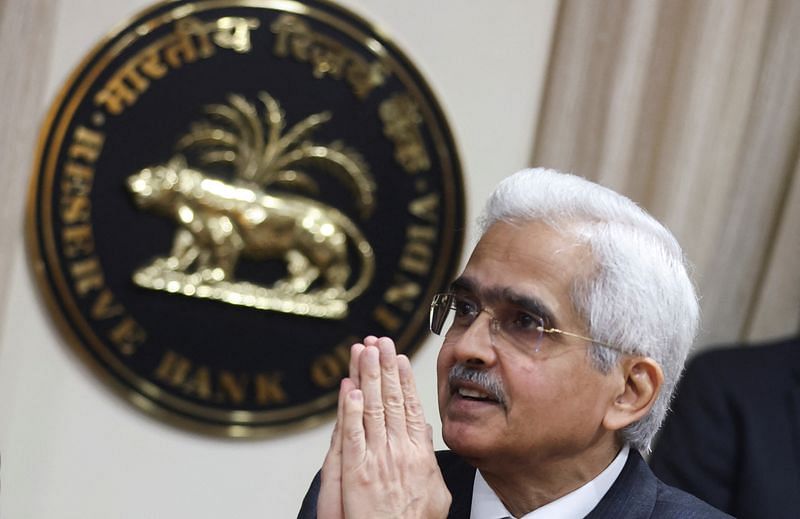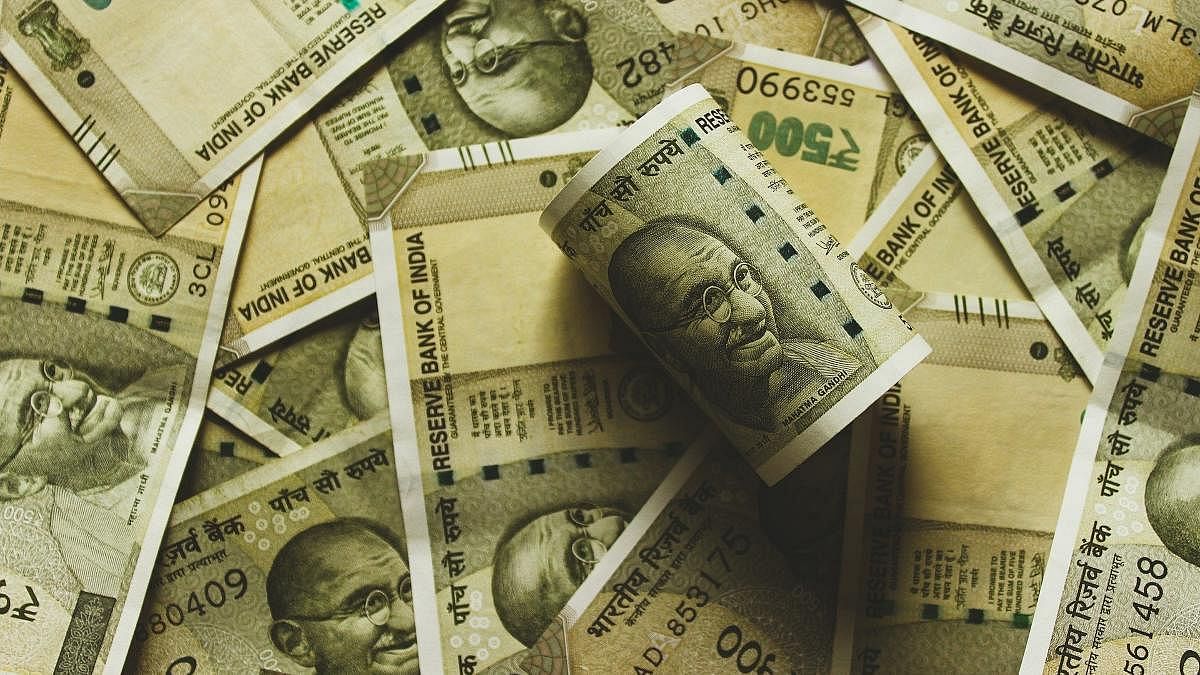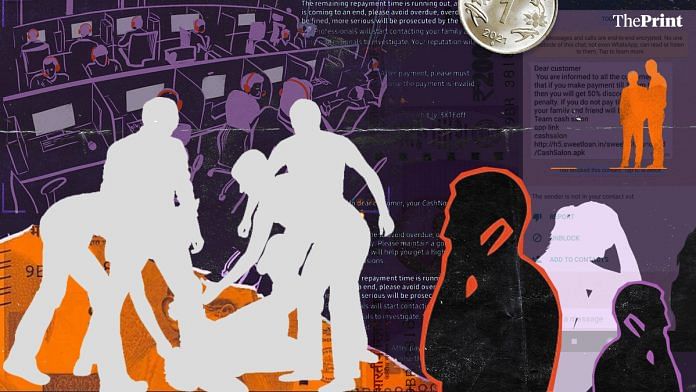New Delhi: Ikram Khan Pathan, a resident of Gujarat’s Baroda district, came back to India from Saudi Arabia this month to attend a wedding in the family. What was to be a joyous occasion, however, quickly turned to trauma at the hands of loan recovery agents.
On 19 November, Pathan and his younger brother Sameer were riding their cousin’s bike to the wedding in Anand, 70 km from Baroda. Midway through the journey, they were suddenly accosted by three men, who started beating up Sameer.
This was not a robbery. It was a message.
It turns out, the three men were loan recovery agents.
Pathan and Sameer, however, had no connection to the loan in question, save for a familial tie. Their cousin had taken a loan from IDFC Bank at 19 percent interest a few years ago to buy a two-wheeler, but had not been able to repay the instalments for the last few months.
“My cousin used to work in a café, but it closed and he lost his job. which is why he was not able to repay the loan,” Pathan told ThePrint. “The three recovery agents surrounded us on the road and started beating and threatening us,” he said. “This is complete hooliganism.”
Pathan said he had complained about the incident to the Gujarat Chief Minister’s Office, but his family remains scared.
Like Pathan, there are thousands of people in the country who are troubled by the threats and harassment of loan recovery agents, a problem exacerbated by the proliferation of instant loan apps that offer money at a click.
In most cases, the loans in question are small — about Rs 10,000 to Rs 50,000. Yet, the interest rates can go as high as 40 percent.
The issue of harassment has emerged as such a major worry over the last few months that Finance Minister Nirmala Sitharaman addressed the menace in the Lok Sabha earlier this year.
“I have heard complaints about how mercilessly loan repayments have been followed up by some banks,” Sitharaman said in the Lok Sabha in July.
“The government has instructed all banks, both public and private, that harsh steps should not be taken when it comes to the process of loan repayments and they should approach the matter with humanity and sensitivity in mind.”
In June, the Madras High Court said that coercive methods of private recovery agents hired by banks are not permissible and “no muscle power can be exercised by the agents”.
Officials in the banking sector, however, defend themselves by either saying they have nothing to do with the actions of the loan recovery agents — often employees of agencies hired to reclaim loans — or by insisting that they comply with the directions of the Reserve Bank of India (RBI).
“People do not repay the loans on time,” an official of the loan recovery department of IDFC Bank in Gujarat said on the condition of anonymity. “Due to this, the non-performing assets of the bank keep increasing. That is why people are sent for recovery.”
ThePrint has learnt that the recovery agents were not sent by IDFC Bank directly, but by a third party that had been engaged to explore ways to reduce non-performing assets. ThePrint has contacted IDFC Bank for comment by phone and this report will be updated when a response is received.
The officer quoted earlier said recovery agents don’t misbehave with customers.
“There are guidelines from the RBI and the top management of the bank that customers should not be coerced,” the official added. “However, if any case comes to us, we investigate it.”
An employee working in the loan recovery department of a private bank in Delhi said the bank hires recovery agents through a third party.
“The bank cannot directly hire them because it brings down the reputation of the bank,” he added.
RBI takes note
The RBI certainly does have regulations on the behaviour of loan recovery agents, the latest version of which were issued in October 2022.
Under the rules, the lending institutions are to ensure that their agents do not “resort to intimidation or harassment of any kind, either verbal or physical, against any person in their debt collection efforts”.
The list of ‘don’ts’ is long, including: not taking any actions intended to publicly humiliate or intrude upon the privacy of the debtors’ family members, referees and friends, sending inappropriate messages, making threatening calls, persistently calling the borrower, calling the borrower before 8 am and after 7 pm, and making false and misleading representations in order to recover the loan.
The RBI has also issued several circulars over the years to stop the harassment being done by recovery agents associated with banks and non-banking financial companies (NBFCs).
In March this year, the RBI imposed a fine of Rs 2.27 crore on RBL Bank for not complying with certain directives on loan recovery agents.
Earlier this month, the RBI imposed a fine of Rs 90.92 lakh on Axis Bank because it failed to ensure appropriate behaviour of recovery agents with some of the delinquent borrowers.

The RBI has also imposed fines on Kotak Mahindra Bank, Early Salary Services Private Limited, L&T Finance Limited, RBL Bank, and Krazybee Services Private Limited for offences relating to the behaviour of loan recovery agents, overcharging penal interest on borrowers, and failing to audit their outsourcing activities.
“When the banks saw that people were not repaying the loans, they started hiring agents because of their fear that the people would not repay loans,” economist and banking expert Sharad Kohli told ThePrint. “All banks adopted this.”
“Such coercive ways should be stopped,” Kohli added, but said the onus was also on borrowers who should repay their loans on time and prevent such a situation from arising in the first place.
On 17 November, the central bank issued a notification intended to curb the growth of unsecured loans — given without any collateral attached, and usually at high interest rates.
While this was ostensibly to protect the financial system from a surge in NPAs and bad debt, ThePrint has learnt that another reason was the troubling rise in the misbehaviour of loan recovery agents.
At a monetary policy committee (MPC) meeting in October, RBI Governor Shaktikanta Das flagged high growth in certain components of consumer credit, emphasising the need for “robust risk management and stronger underwriting standards”.
Despite RBI efforts, however, outstanding unsecured personal loans grew 25 percent between September 2022 and 2023, according to data from the central bank.
Meanwhile, complaints abound on social media about the harassment meted out by loan recovery agents. From X (formerly Twitter) to Facebook, people are constantly tagging banks and complaining about this.
Also Read: China’s loan apps mafia spills over to India. Banning isn’t going to help
‘Repeat calls, mental harassment’
Arvind Rajput, a daily-wager based in Agra, Uttar Pradesh, keeps his phone switched off these days. Between two credit cards, a personal loan and three apps, he has a debt of Rs 1 lakh.
A typhoid infection two months ago, he told ThePrint, rendered him unable to work and he fell behind on the instalments. The calls, he said, haven’t stopped since.
“Every 5 minutes, I get calls from recovery agents asking for money. They say ‘kya yeh tere baap ka paisa hai’. ‘Apni kidney bech ya jewar bech, lekin paise vapis kar (Is this your father’s money? Sell your kidney or jewellery, but return the money)’,” he said.
Rajput claimed the lending apps accessed all his phone contacts, and the callers haven’t spared his friends and relatives either. “They send me the photos of my contact list and threaten me. My respect among neighbours and friends has been ruined. These agents call them at all hours and ask for money,” he said.
Reached for comment, an employee in the loan collection department at the Gurugram office of MobiKwik — one of the apps to which Rajput owes money — said separate people were hired by the company for loan recovery.
Even so, the employee refused to accept that their recovery agents misbehave with customers.
Digital lending in India has increased significantly in the last few years. According to a 2021 report by the RBI Working Group, digital lending registered a growth of over 12 times between 2017 and 2020.

Cyber expert Abhay Chawla said the convergence of technology with loans has brought many challenges. “People look at the convenience but do not see the dangers of the technology,” he added. “Loan apps read people’s entire contact lists and then recovery agents threaten them.”
Some instant loan apps also demand a selfie from borrowers before approving requests. In case of delayed payments, recovery agents have been known to morph their image — identifying them as “fraud (sic)” — and send it to their contacts.
Chawla said digital media had no geographical boundaries, which makes regulation very difficult.
“In a diverse country like India, there is no requisite empowerment regarding technology,” he added. “Every new technology has a slippery slope and it is very important to fix accountability for its misuse.”
On reports of recovery agents’ misbehaviour, Chawla said, “Once something starts, it becomes the precedent.”
There have been many efforts to curb the threat posed by predatory apps.
In February, the government blocked dozens of loan apps, for offences including fraud and extortion. The RBI has cancelled the registrations of several NBFCs, and Google Play has set more stringent requirements for such apps — the tech giant also removed 3,500 loan apps from its app store this year for accessing user data among other non-compliance issues.
Also Read: 50% of crimes reported are cybercrimes, loan app fraud most dangerous: Hyderabad police commissioner
The ‘way out’
The set-up of recovery services is like a call centre, where dozens of people sit in a big hall to make calls while others go out into the field.
“These people are hired on a salary of Rs 10,000-12,000 a month. The recovery agents who visit people’s homes are usually musclemen,” said an employee working in the loan recovery department of a private bank in Delhi.
The Securitization and Reconstruction of Financial Assets & Enforcement of Security Interest Act, 2002 (SARFAESI), gives banks legal authority to recover the money that has become NPA, by taking borrowers’ property into possession and auctioning it.
Banks generally turn to recovery agents when it comes to smaller amounts.
“In case of big loans, the entire case is handled under the SARFAESI Act, but in case of small loans, the bank often takes the help of recovery agents,” said Adesh Jain, owner of AK Jain Associates, an agency hired by public-sector Indian Overseas Bank.
Delhi-based Kunal Kumar, who has built a social media following on account of his attempts to help people harassed over loans, said many borrowers contact him through WhatsApp when faced with aggressive recovery agents. Kumar talks to the latter on their behalf.
“Some time ago, five people used to reach the house of a person in Alipur, Delhi, early in the morning and return at 10 in the night. He contacted me, then I went to his house and talked to the agents and resolved the matter,” he said.
For Kumar, experience has proved a bitter teacher. Two years ago, he took a loan of Rs 3 lakh, but when he found himself unable to make further payment after repaying Rs 80,000, the calls began.
“I was under so much pressure that I kept my phone switched off for two months. Even though I am an IT expert, I could not bear all this and it took a lot of time to control myself,” he added.
Even as his own ordeal continues, Kumar said, he decided to tap his experience to help others. He told ThePrint that, in his conversations with the agents, he invokes the law, telling them what’s the legal way to deal with non-payment of dues and how harassment is illegal.
“When you tell them all this, they go away on their own,” he added.
Kumar is not alone in believing that awareness among borrowers about their rights can help tackle this menace.
Shubham Kumar, an advocate in the Supreme Court and Delhi High Court, said there was no separate legal provision regarding the misbehaviour of bank recovery agents. “People can file a case against them under IPC sections and also file a defamation case and claim compensation,” he said.
Shubham said people think that recovery agents have the right to threaten, hence they do not say anything against them. “People avoid complaining to the police because they do not know the basic laws and rights,” he added. “And they don’t want to get entangled in the case and waste their money.”
(Edited by Sunanda Ranjan)
Also Read: ‘Like fraud, usurious’ — digital lending apps in spotlight for high interest rates & fees



